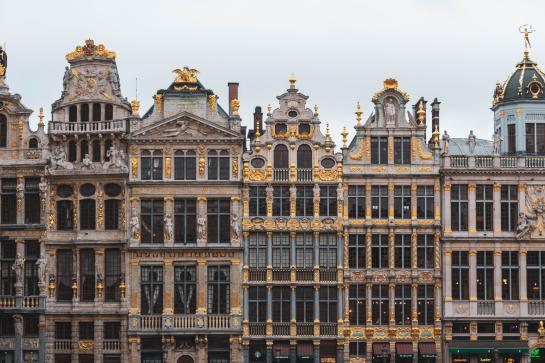
Confirmed Keynote: Patrick McGuinness (University of Oxford)
Organisation: Daniel Acke, Elisabeth Bekers, Diana Castilleja, Michael Rosenfeld
The annual study day of the Centre for Literary and Intermedial Crossings of Vrije Universiteit Brussel will take place on the 24th of November 2023. The study day considers how Brussels has been imagined in literature, theatre, film and other genres in different language areas and artistic currents since the 18th century. With this theme, CLIC is launching its initiative for an anglophone sequel to Brussel schrijven/Écrire Bruxelles (ed. D. Acke & E. Bekers, VUB Press 2016). The organisers of the study day welcome contributions in English* that explore the Belgian capital from a wide variety of perspectives; the list below, based on the earlier book, only serves as inspiration for the various formal and thematic aspects that may be addressed.
a. genres and other formal aspects: the relation between the imaginings of Brussels and
- artistic currents: from romantic to postmodern Brussels, with corresponding themes (see b.);
- generic specificities: Bildungsroman, crime novel, (street) poetry, essay, diary, witness report, letter, chanson, comic, play, film, radio, written press, ...;
- intermediality: text & urban photography, music, visual art, ...;
- translation: Brussel, Bruxelles, Brussels, Brüssel, Bruselas, ... in translation;
b. themes: the imagination of Brussel in relation to specific urban themes or the history of Brussels, such as
- Brussels as attraction for pole for diversion and temptation, and associated social practices (flânerie, nightlife, queer scene, ...) and places (theatres, cinemas, dance halls, cafés, brothels, ...);
- Brussels as site for social and cultural diversity: city of contrasts, palimpsest, multilingual and multicultural metropolis, ...;
- Brussels from the perspective of the Other (the exiled, the migrant, the foreigner, the traveller, the tourist, ...), the city as place of refuge, as catalyst for reflections on identity, ...;
- Brussels as melting pot of political, philosophical, literary and artistic ideas: the Enlightenment revolution, Belgian politics, freemasonry, academic life, avant garde, collaboration between local and foreign writers/artists/publishers, ...);
- Brussels as centre of power (Belgian/European capital, colonial centre) and its emblematic topographies (the European quarter, royal locations, ...);
Brussels as witness to or representation of the broader historical context (revolution, struggle forindependence, occupation, resistance, persecution of the Jews, ...), of urban/societal customs and morals, of a Brussels identity (“bruxellisation”, the absence of a mythical identity, ...), as utopia/dystopia, ...
More information and abstracts (300 words ) and bio (100 words) in English by 6 July 2023: daniel.acke@vub.be; elisabeth.bekers@vub.be, diana.castilleja@vub.be, michael.rosenfeld@vub.be.
* Presentations in languages other than English (with visual support in English) are possible, provided they will be developed into an article in English, with an eye on the planned academic publication; this is aimed at a broader academic readership, including the students of the general bachelor course “Literature, city and society” and the general master course “Linguistics and Literary Studies in Brussels.”

